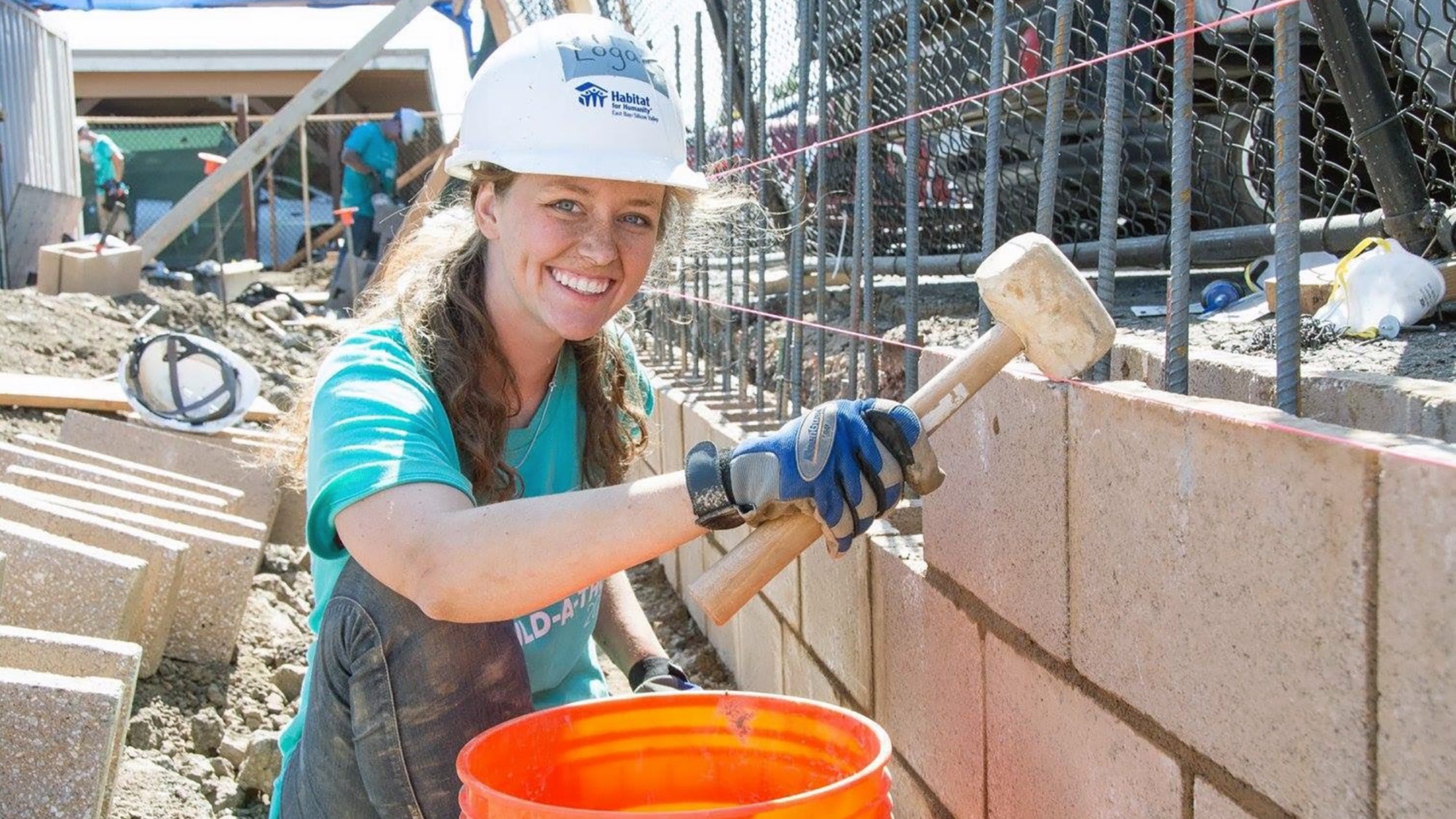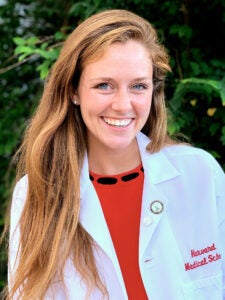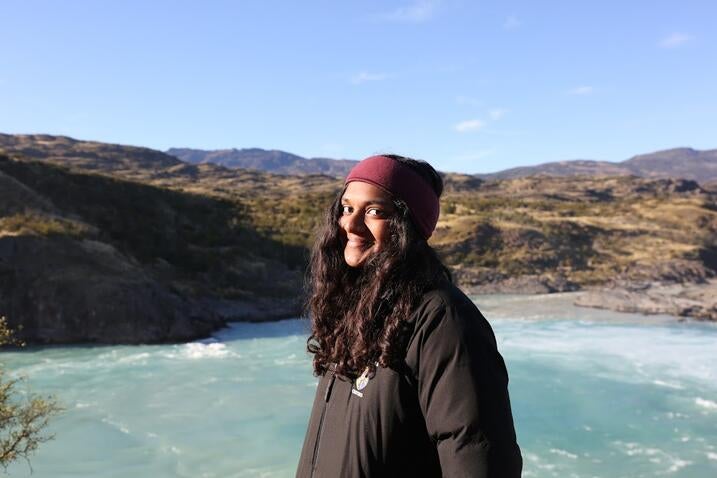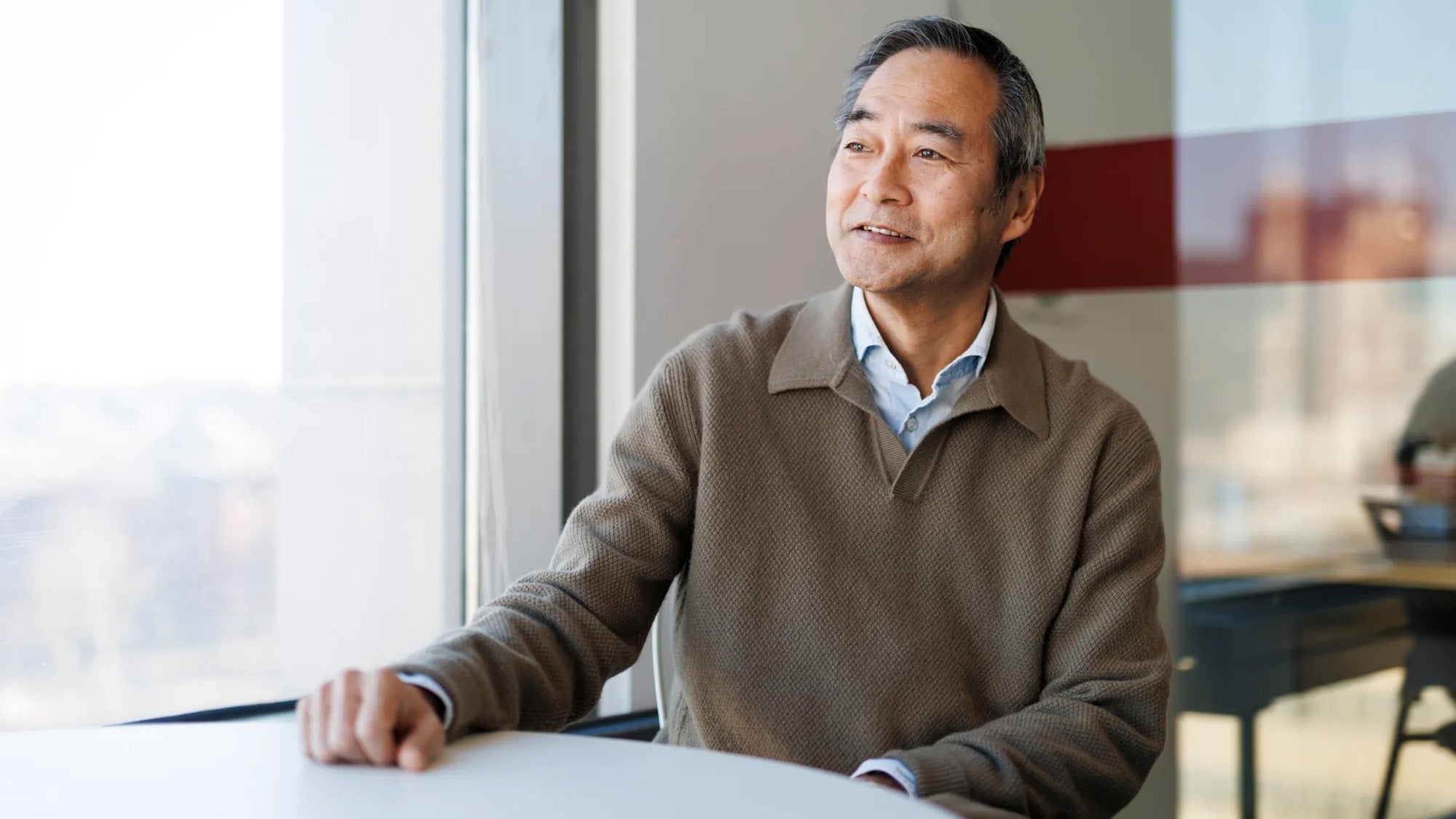Logan Beyer receives Service Year Alums Award for AmeriCorps work

Logan Beyer, MD-PhD ’28, wanted to hit things with a hammer. Hard.
She had always been a planner, and had her next steps after college figured out—earn her BS degree and then take a gap year before starting medical school and fulfilling her lifelong dream of becoming a pediatrician. Her applications for jobs in research and children’s services were ready to go. But then Beyer received devastating news: Her dad was diagnosed with terminal cancer. She was left reeling, unsure what to do next. Then, out of the blue, she had a dream about using a hammer on a construction site. She woke up convinced that was where she needed to be. Out of her depth but determined to follow through, she decided to take a big leap.
Beyer joined the AmeriCorps National Service Program and started work that fall. As a construction crew leader with Habitat for Humanity, she used her hammer to both channel her grief into physical labor and create something meaningful and lasting.
The job proved to be an unexpected but pivotal step on her path to becoming a physician-scientist, said Beyer, who is currently studying in the Department of Social and Behavioral Sciences at Harvard T.H. Chan School of Public Health. Seeing firsthand the difference that safe and healthy home environments can make for families has helped her to become a forceful advocate for children’s health equity, she said.
This year, after having one of her grants terminated and watching AmeriCorps’ funding get cut by the Trump administration, Beyer was inspired to share her story with the Service Year Alliance, a non-profit that oversees the AmeriCorps alumni network. By collecting stories from former Corps members, the Alliance has been promoting the importance of continued federal investments in service year programs. Convinced her own journey was proof of the power of AmeriCorps, Beyer entered the 2025 Service Year Alums competition and was recognized with one of its awards.
Moving from theory to action

Beyer comes from a family of women dedicated to health care and service. One grandmother was a pediatrician, the other a dietician and teacher at a school for the deaf, and her mother is a physical therapist. Beyer said that the seeds of her own pediatrics career were planted early, as she frequently cared for her younger brother and cousins. She worked with kids on service trips to South America in high school and designed her own major—a systems approach to child development—at Duke University. Through her studies and community work, she said that her eyes were opened to the ways in which societal injustice impacts children’s lives.
It had long been clear to Beyer that the neighborhoods where children grow up play an important role in their health, but that idea was mostly theoretical until she joined AmeriCorps, she said.
Beyer helped build 38 houses during her two years of service. Although her first day on the job did not get off to an auspicious start—one of the crew’s lead carpenters had to show her how to properly hold a hammer—she stuck with it, moving from a novice to a skilled tradeswoman and crew leader capable of guiding teams of up to 100 volunteers. The experience gave her confidence in her leadership abilities and strengthened her commitment to public service, she said.
In addition to her construction duties, Beyer volunteered to go on home interviews with potential clients. Through this process, she saw the moldy carpets that were causing asthma attacks and heard about neighborhood crime and unstable rental situations. She became convinced that investments in housing and neighborhoods could improve people’s health and wanted to find a way to prove it.
Dual program offers multiple perspectives
After her AmeriCorps service ended, Beyer entered Harvard Medical School (HMS) and was later accepted into the Harvard/MIT MD-PhD program, which is administered at HMS. [Students in the program can complete their PhDs at affiliated schools, hospitals, and research centers.] Beyer expects to finish the PhD portion of her studies at Harvard Chan School next year. She’ll then finish her medical studies and graduate with an MD-PhD in 2028.
Beyer said that she appreciates the multiple perspectives the combined degree provides. “Medicine is amazing. I cannot wait to be a pediatrician, to take care of kids and work with families that are hurting,” she said. “But I also know that, too often, children don’t get sick at random. My courses at the Chan School have helped me articulate the contexts that shape children’s health. I can use theory to formulate questions about why children are getting sick, looking at forces beyond just physiology and behavior. I can ask provocative questions about the causal pathways linking structural inequities to pediatric illness. And I can analyze data in ways that are—hopefully—meaningful and actionable.”
Her PhD dissertation focuses on the questions she spent years asking herself as she built houses—how, when, and where do neighborhoods matter? Currently, she’s examining data about neighborhoods in Cambridge, Mass., to identify locations where families are at greatest risk for food and housing insecurity and need extra support.
Of her award, Beyer said, “I’m grateful for the reminder that there are people who see the value in service to others, and in public health, and in investing in the lives of children and families. It gives me fortitude for the road ahead.”


